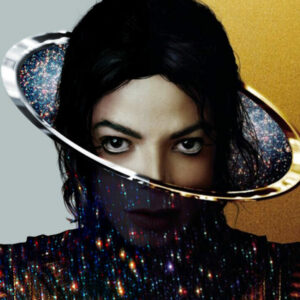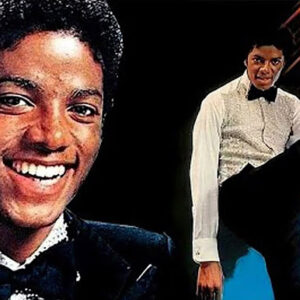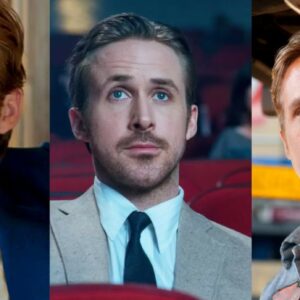In the annals of film history, there are few cinematic pairings that have achieved the blend of humor, charm, and depth as effectively as Ryan Gosling and Steve Carell in the 2011 romantic comedy Crazy, Stupid, Love. Directed by Glenn Ficarra and John Requa, the film stands out not only for its engaging storyline but also for the magnetic chemistry between its lead actors. This article delves into the unique dynamics between Gosling and Carell, examining how their contrasting styles create an unforgettable cinematic experience.
The Set-Up: A Formula for Success
At the heart of Crazy, Stupid, Love is the story of Cal Weaver (Steve Carell), a middle-aged man whose life is thrown into turmoil when his wife, Emily (Julianne Moore), asks for a divorce. Faced with the collapse of his marriage and a daunting future, Cal is left adrift in a world that seems to have moved on without him. His emotional and social disarray sets the stage for the film’s central dynamic.
Enter Jacob Palmer (Ryan Gosling), a dashing, confident womanizer who represents the antithesis of Cal’s heartbroken, lost persona. Jacob takes it upon himself to mentor Cal, transforming him from a dejected divorcee into a suave and appealing gentleman. This setup—the juxtaposition of a hapless man in crisis with a smooth-talking bachelor—might seem clichéd, but Crazy, Stupid, Love distinguishes itself through the fresh, engaging chemistry between Gosling and Carell.
Ryan Gosling: The Charismatic Chameleon
Ryan Gosling’s portrayal of Jacob Palmer is a testament to his remarkable versatility as an actor. While Gosling is often celebrated for his depth and intensity in dramatic roles, his performance in Crazy, Stupid, Love showcases his comedic prowess. Jacob Palmer is the quintessential ladies’ man: stylish, self-assured, and effortlessly charming. However, Gosling imbues the character with a layer of humor and vulnerability that transcends the typical romantic comedy archetype.
Gosling’s comedic timing is impeccable. He delivers his lines with a blend of confidence and self-deprecation, making Jacob a character who is both irresistibly attractive and endearingly flawed. This nuanced portrayal prevents Jacob from becoming a one-dimensional stereotype, adding depth to the film’s humor.
One of the standout scenes featuring Gosling is the iconic “pick-up artist” montage, where Jacob schools Cal in the art of seduction. The sequence is a brilliant showcase of Gosling’s ability to combine charm with comic timing. His interactions with Carell during these moments are electric, with Gosling’s confidence contrasting sharply with Carell’s awkwardness, creating a delightful comedic tension.
Steve Carell: The Reluctant Everyman
Steve Carell’s performance as Cal Weaver is a masterclass in blending pathos with humor. Known for his roles in both television and film that highlight his ability to portray earnest, often bumbling characters, Carell brings a genuine, relatable quality to Cal. His portrayal of a man grappling with the disintegration of his marriage is both poignant and humorous, providing a solid counterbalance to Gosling’s more flamboyant character.
Carell’s Cal is everyman struggling with the upheaval of his personal life. His performance captures the raw vulnerability of a man who has lost his footing in the world. As Cal navigates the awkwardness of re-entering the dating scene, Carell’s comedic timing shines through, particularly in scenes that emphasize his character’s social ineptitude and emotional vulnerability.
A memorable moment is when Cal, newly transformed by Jacob’s guidance, encounters his estranged wife at a party. Carell’s ability to convey a mix of hope, insecurity, and earnestness in this scene highlights his talent for blending humor with emotional depth. His interactions with Gosling during these moments are particularly compelling, as they underscore the stark contrast between their characters’ approaches to life and love.
The Dynamic Duo: Chemistry on Screen
What makes the pairing of Gosling and Carell truly remarkable is the way their individual styles complement each other. Gosling’s suave, self-assured Jacob contrasts with Carell’s awkward, earnest Cal, creating a dynamic that drives much of the film’s humor. Their interactions are not just amusing; they are deeply rooted in the characters’ contrasting worldviews, which enhances the film’s comedic and emotional impact.
The chemistry between Gosling and Carell is evident in their shared scenes, where their performances create a delightful interplay of humor and humanity. The “makeover” scenes, where Jacob transforms Cal from a dowdy divorcee into a polished gentleman, are particularly effective in showcasing their dynamic. Gosling’s smooth, confident demeanor plays off Carell’s hesitant, self-deprecating responses, resulting in scenes that are both hilarious and heartwarming.
The film’s success lies in its ability to balance humor with heartfelt moments, a balance that is expertly achieved through the chemistry of its leads. Gosling and Carell’s performances offer a study in contrasts that is both entertaining and engaging, drawing the audience into their on-screen relationship and making the film’s emotional moments resonate more deeply.
A Fresh Take on Romantic Comedy
Crazy, Stupid, Love distinguishes itself in the romantic comedy genre through its innovative approach to character dynamics and humor. The film combines traditional elements of the genre with a fresh perspective, largely due to the remarkable chemistry between Gosling and Carell. Their performances elevate the film from a conventional romantic comedy to a memorable cinematic experience.
The film’s ability to blend humor with genuine emotional moments is largely due to the way Gosling and Carell interact on screen. Their contrasting styles create a dynamic that is both amusing and relatable, offering a new take on the classic romantic comedy formula. The result is a film that stands out not just for its engaging story, but for its exceptional performances that bring its characters to life.
Conclusion: A Cinematic Gem
In conclusion, the pairing of Ryan Gosling and Steve Carell in Crazy, Stupid, Love is a prime example of how contrasting performances can create a captivating on-screen partnership. Gosling’s suave, charismatic Jacob and Carell’s earnest, awkward Cal combine to form a dynamic that is both humorous and heartfelt. Their chemistry drives the film, transforming it from a standard romantic comedy into a memorable cinematic experience.
Their performances offer a study in the art of comedic timing and emotional depth, showcasing how well-matched actors can elevate a film’s impact. As a result, Crazy, Stupid, Love remains a standout example of the power of on-screen chemistry, demonstrating that the right pairing can bring a fresh and engaging perspective to even the most familiar of genres





